Selma, Alabama, is a city where the Alabama River curves gracefully through the heart of the Black Belt. This enchanting riverside community, with its moss-draped live oak trees and antebellum mansions, offers visitors a profound journey through America’s most transformative moments.¬
From the iconic Edmund Pettus Bridge, a symbol of courage, to a sprawling historic district showcasing over 1,200 preserved structures, Selma seamlessly weaves together threads of history, culture, and Southern charm.
Founded in the 1820s, Selma witnessed pivotal chapters in American history, from its role as a Confederate stronghold during the Civil War to becoming the epicenter of the Civil Rights Movement in the 1960s.¬
Today, visitors can walk in the footsteps of heroes, explore magnificent architecture, and experience the warm hospitality that defines Alabama’s Black Belt region.
This comprehensive guide will take you on an unforgettable journey through Selma’s 20 most captivating attractions, from world-renowned historical landmarks to hidden local gems.¬
Whether you’re drawn by the city’s powerful civil rights legacy, fascinated by its rich architectural heritage, or simply seeking an authentic Southern experience, Selma offers something extraordinary for every traveler.
Things to Do in Selma, AL
1. Explore the Selma Interpretive Center
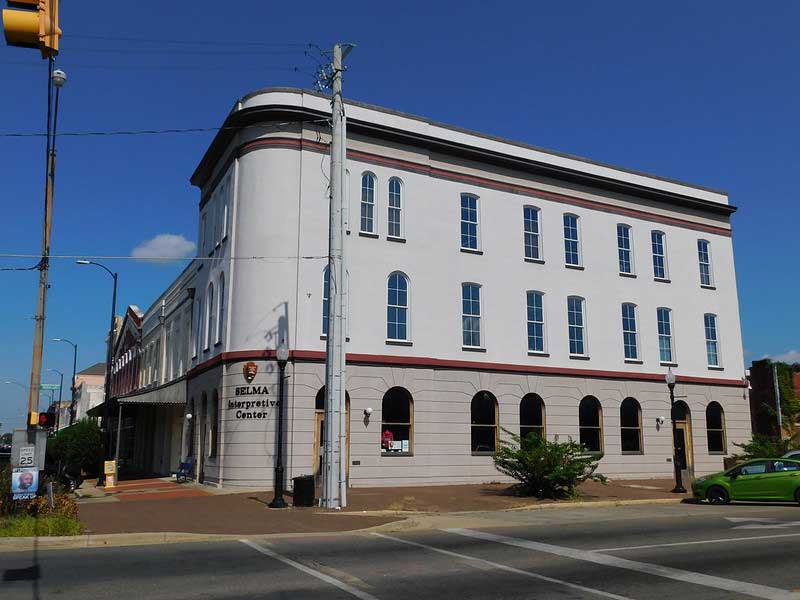
Selma Interpretive Center
Located at the foot of the Edmund Pettus Bridge, the Selma Interpretive Center is the perfect introduction to Selma’s pivotal role in the Civil Rights Movement. This National Park Service facility offers comprehensive exhibits, films, and interactive displays bringing the events of 1965 to life.
The center features detailed timelines of the Selma to Montgomery marches, personal artifacts, and powerful testimonies. Rangers provide informative talks. The facility also includes a well-stocked bookstore.
As of March 2025, the Selma Interpretive Center is closed for major construction to expand and update the visitor experience, with completion expected by 2028.
However, a temporary location has opened at the Selma Welcome Center at 14 Broad Street, which is open Monday – Saturday, 9:00 a.m. to 4:30 p.m. CST. This temporary location still provides exhibits and a bookstore. Plan to spend at least an hour here. Free admission makes this an accessible starting point.
Address: 2 Broad Street, Selma, AL 36701
2. Walk Across the Historic Edmund Pettus Bridge
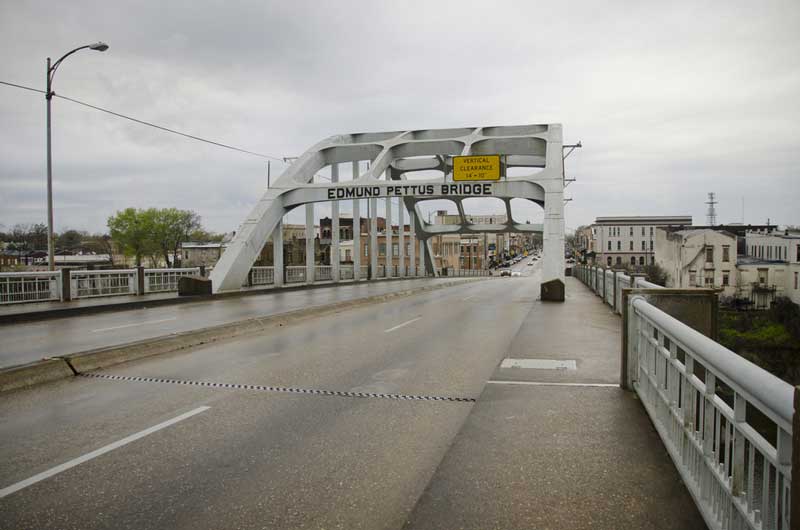
Edmund Pettus Bridge
The Edmund Pettus Bridge stands as perhaps the most iconic and emotionally charged landmark in American civil rights history. This steel arch bridge, spanning majestically over the Alabama River, became forever etched in the nation’s collective memory on March 7, 1965 “Bloody Sunday” when peaceful marchers seeking voting rights were brutally attacked.
Walking across this National Historic Landmark offers visitors a profound experience, with stunning views of the Alabama River and interpretive markers telling the story of courage. The foot of the bridge features an overlook with benches for reflection.
Visit during early morning or late afternoon for dramatic lighting. The annual Bridge Crossing Jubilee in March commemorates the historic march.
Address: US-80, Selma, AL 36703
3. Tour Selma’s Magnificent Historic District
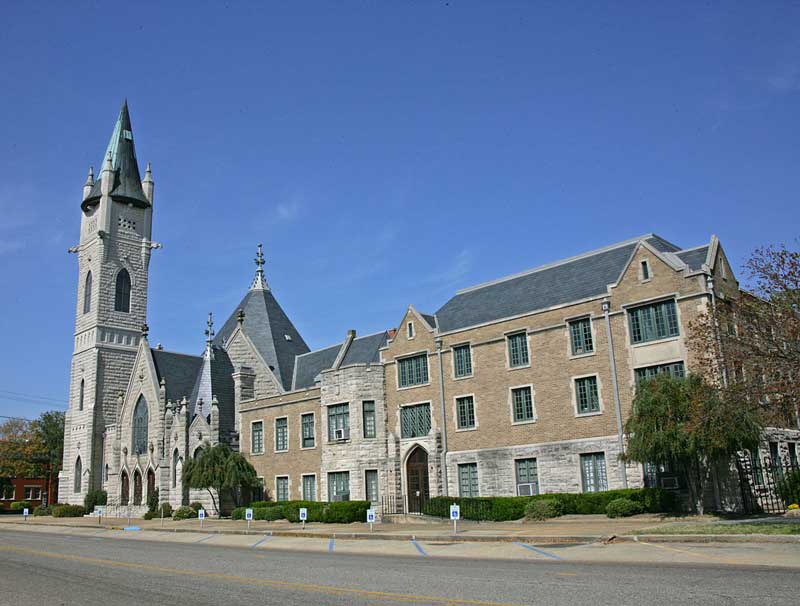
Historic District
Walking tours reveal stunning examples of Greek Revival mansions, Gothic Revival churches, and ornate Victorian cottages. Tree-lined streets canopied by ancient live oaks create an enchanting atmosphere.
Self-guided walking tour maps are available at the Centre for Commerce, or arrange professional guided tours. Best time for photography is during the “golden hour” just before sunset.¬
Address:¬Selma, AL 36701
4. Visit Brown Chapel AME Church
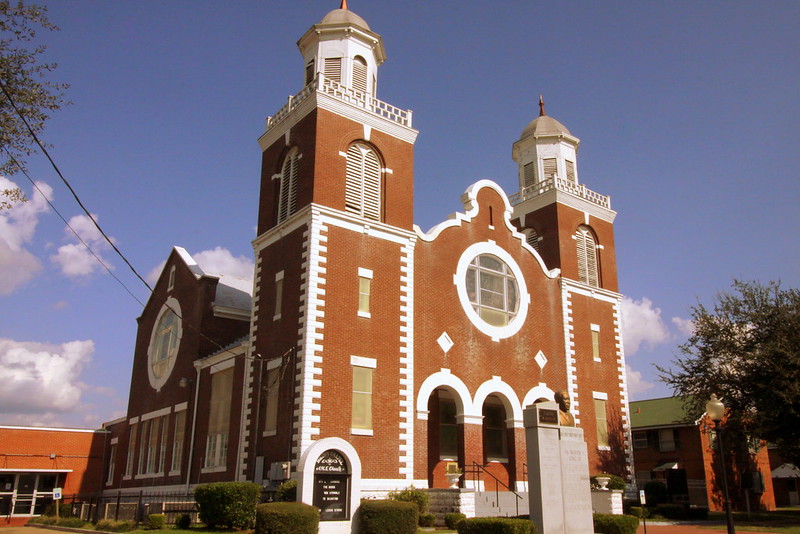
Brown Chapel AME Church
Brown Chapel AME Church holds a sacred place in civil rights history as the spiritual headquarters of the Selma voting rights campaign. This Gothic Revival brick church, built in 1908, served as the meeting place for Dr. Martin Luther King Jr., John Lewis, and other leaders.
The church’s sanctuary, with its beautiful stained glass windows, provides a powerful sense of courage and faith. Historical photographs and displays commemorate its role. The pulpit from which Dr. King delivered speeches still stands.
Guided tours are available by appointment. The church continues to be an active place of worship. Sunday services offer an authentic experience.
Address: 410 Martin Luther King Jr Street, Selma, AL 36703
5. Discover the National Voting Rights Museum and Institute
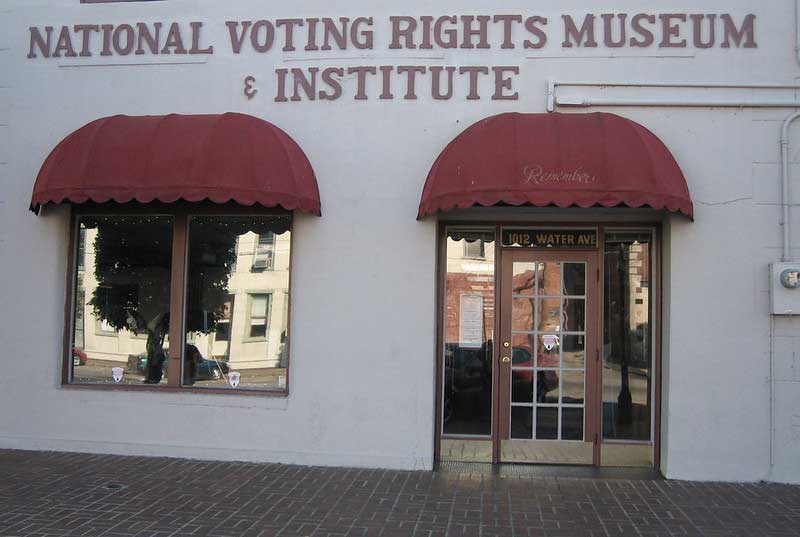
National Voting Rights Museum and Institute
The National Voting Rights Museum and Institute offers an immersive journey through the struggle for voting rights in America. Located near the Edmund Pettus Bridge, this museum presents comprehensive exhibits from the nation’s founding to the modern era.
Interactive displays, historical artifacts, and multimedia presentations bring to life stories of ordinary people. The “I Was There” exhibit features recorded testimonies. Special exhibits rotate throughout the year.
The museum’s educational programs serve thousands of students. Allow 2-3 hours to fully experience the museum. Consider purchasing books from their gift shop.
Address: 6 US Hwy 80 E, Selma, AL 36701
6. Step Back in Time at Old Cahawba Archaeological Park
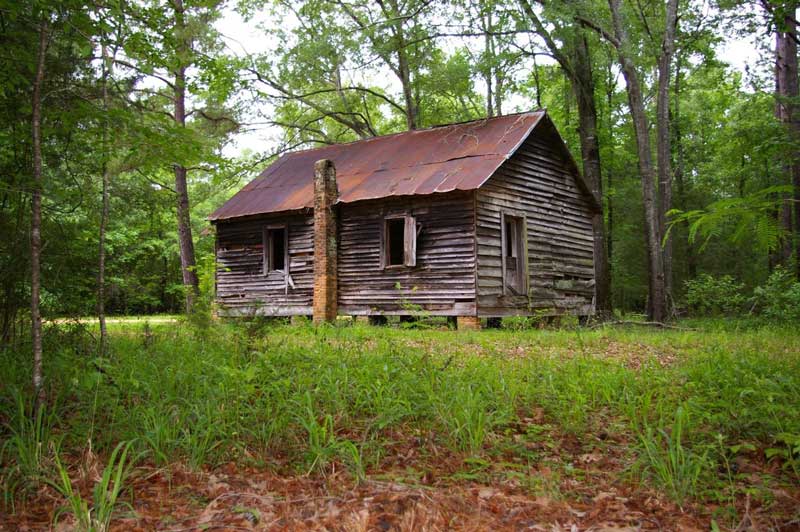
Old Cahawba Archaeological Park
Just 14 miles southwest of Selma lies Old Cahawba, Alabama’s first state capital and now a fascinating archaeological park. This ghost town, abandoned after the Civil War, offers a unique opportunity to explore the ruins of a once-thriving antebellum city.
Walking trails wind through the remains of streets, foundations, and structures. The park preserves several intact buildings, including slave quarters. The site’s natural beauty creates an almost mystical atmosphere.
The visitor center provides historical context. Guided tours are available on weekends during peak season. Bring comfortable walking shoes and insect repellent, especially during summer months. Excellent for photography during the golden hour.
Address: 9518 Cahaba Road, Orrville, AL 36767
7. Explore the Vaughan-Smitherman Museum
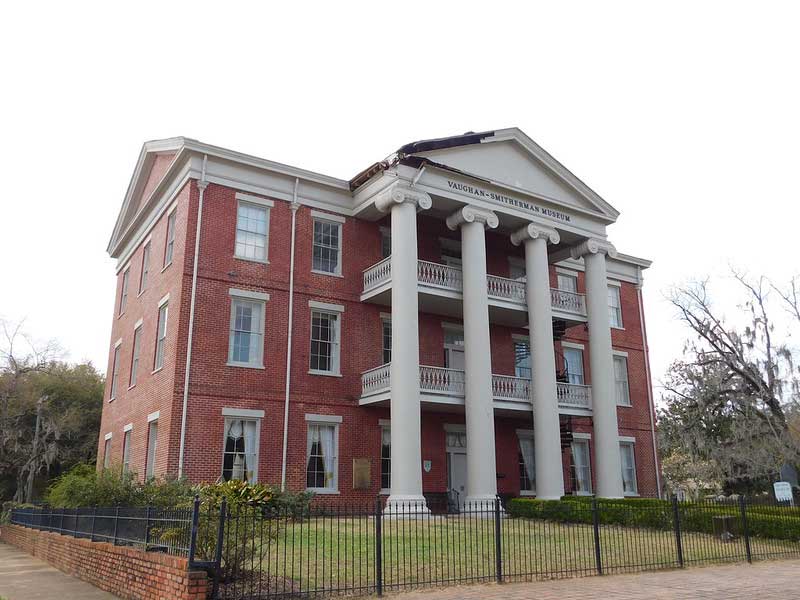
Vaughan-Smitherman Museum
Housed in a beautiful 1847 mansion, the Vaughan-Smitherman Museum offers a glimpse into antebellum life in the Alabama Black Belt. This Greek Revival mansion served as a private residence, Union hospital, and Selma’s first public library.
The museum’s period rooms feature original furnishings, artwork, and decorative arts illustrating the lifestyle of Selma’s wealthy planter class. The mansion’s architecture itself is noteworthy.
Guided tours provide insights into the history of the house and families. Special events throughout the year, including holiday decorations and historical reenactments, offer additional reasons to visit.¬
Address: 109 Union Street, Selma, AL 36703
8. Explore Gallery 905
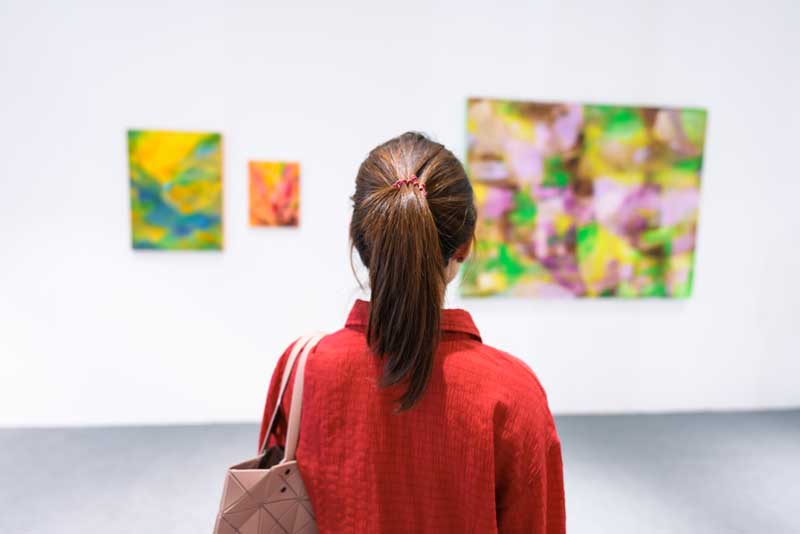
Gallery 905 represents Selma’s vibrant contemporary arts scene, supporting over 100 local and regional artists. This dynamic gallery showcases rotating exhibitions of paintings, sculptures, photography, and mixed media works.
The gallery serves as a cultural hub where visitors can meet artists, attend openings, and purchase original artworks. Regular workshops and classes offer hands-on experiences. The space frequently hosts musical performances and poetry readings.
Exhibitions change regularly. Knowledgeable staff can provide insights into the local arts community. Plan to spend time browsing.¬
Address: 905 Water Ave, Selma, AL 36701
9. Civil Rights Memorial Park
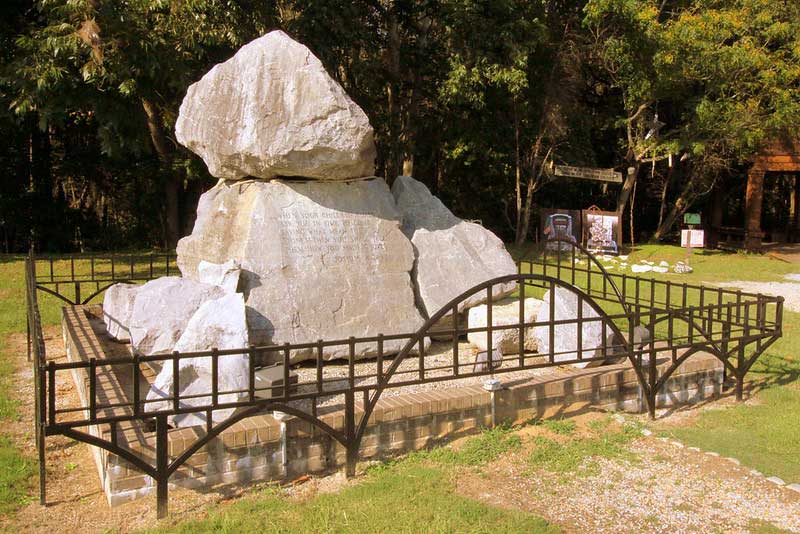
Civil Rights Memorial Park
Civil Rights Memorial Park serves as a peaceful green space in downtown Selma and an outdoor museum dedicated to civil rights history. The park features several important monuments and memorials commemorating the struggle for voting rights.
The park’s centerpiece includes monuments to civil rights leaders and foot soldiers, surrounded by beautiful landscaping. Walking paths connect various memorial sites, providing a cohesive narrative.
Regular community events and commemorative ceremonies take place. The park offers excellent photo opportunities, especially in spring. Benches provide places for quiet reflection.¬
10. Tour Historic St. James Hotel
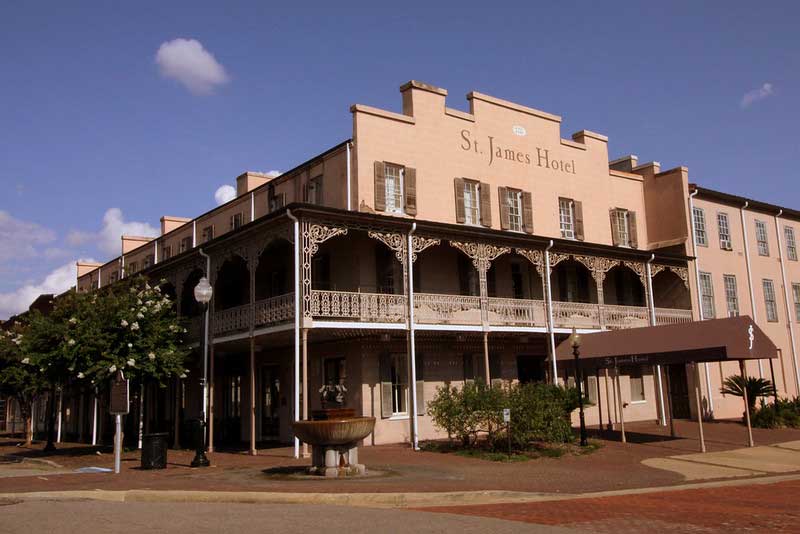
St. James Hotel
The Historic St. James Hotel, built in 1837, stands as one of Alabama’s oldest continuously operating hotels and a magnificent example of antebellum hospitality architecture. It has hosted numerous notable guests throughout its history.
The hotel’s public spaces feature original architectural details and period furnishings. Its history includes serving as a Confederate hospital. The restaurant serves traditional Southern cuisine.
Even if not staying overnight, visitors can tour public areas or enjoy a meal. The hotel’s location is ideal for exploring Selma’s other attractions. It’s rumored to be haunted.
Address: 1200 Water Avenue, Selma, AL 36701
11. Discover the Old Depot Museum
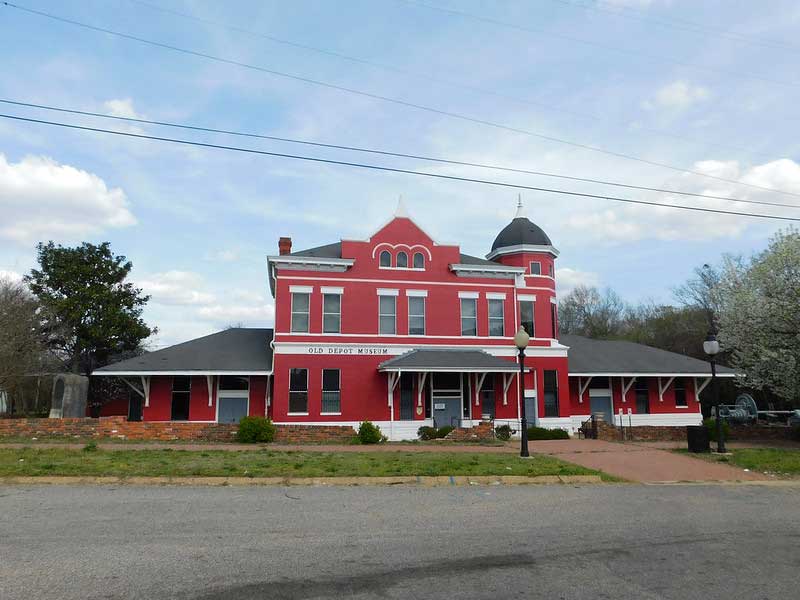
Old Depot Museum
The Old Depot Museum occupies Selma’s restored 1891 railroad depot, showcasing the city’s important role in Alabama’s transportation and economic history. Exhibits tell the story of the railroad’s impact on Selma’s development as a major cotton shipping port.
Displays include original railroad artifacts, vintage photographs, and exhibits on railroad connections. The depot’s architecture is noteworthy. Model train enthusiasts will enjoy the detailed railroad dioramas.
The museum also features rotating exhibits on various aspects of local history. Knowledgeable docents provide fascinating stories.¬
Address: Water Avenue and Martin Luther King Jr Street, Selma, AL 36703
12. Historic Selma Cemetery (Old Live Oak Cemetery)
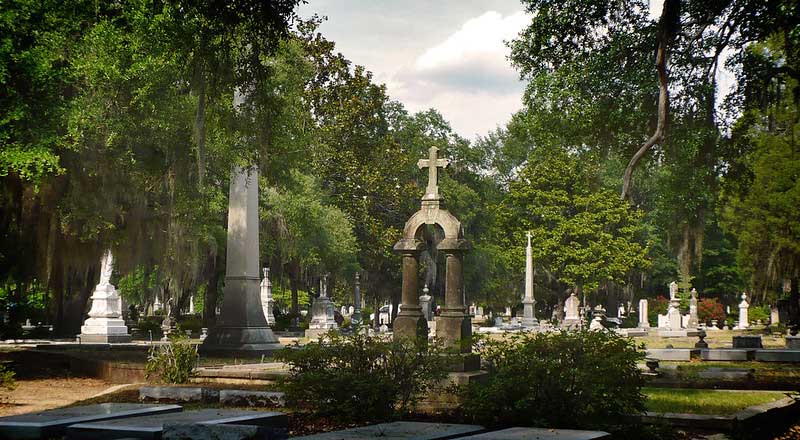
Old Live Oak Cemetery
Historic Selma Cemetery, also known as Old Live Oak Cemetery, offers a peaceful journey through Selma’s past and showcases fine funerary art. Established in the 1820s, it contains elaborate monuments and mausoleums.
Ancient live oak trees, draped in Spanish moss, canopy ornate Victorian monuments and classical sculptures. Notable burials include Confederate generals and prominent figures.
Walking tours reveal fascinating stories. The cemetery is beautiful in spring when flowers bloom. Respectful visitors are welcome during daylight hours.¬
Address: Dallas Avenue, Selma, AL 36703
13. Riverfront Park
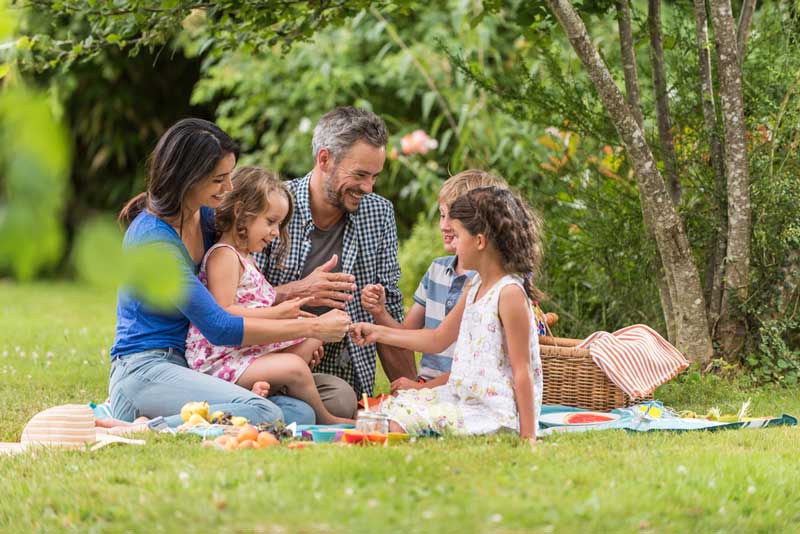
Riverfront Park provides beautiful views of the Alabama River and offers recreational opportunities. The park’s walking trails follow the riverbank, offering excellent vantage points for photography and wildlife observation.
The park features playground equipment, picnic areas, and open spaces. Its riverfront location offers cooling breezes. Fishing opportunities are available.
Regular community events take place in the park. It’s an ideal place to rest while exploring downtown Selma. Sunset views from the park are spectacular.¬
Address:¬2 Green St, Selma, AL 36703
14. Tour the Joseph T. Smitherman Historic Building
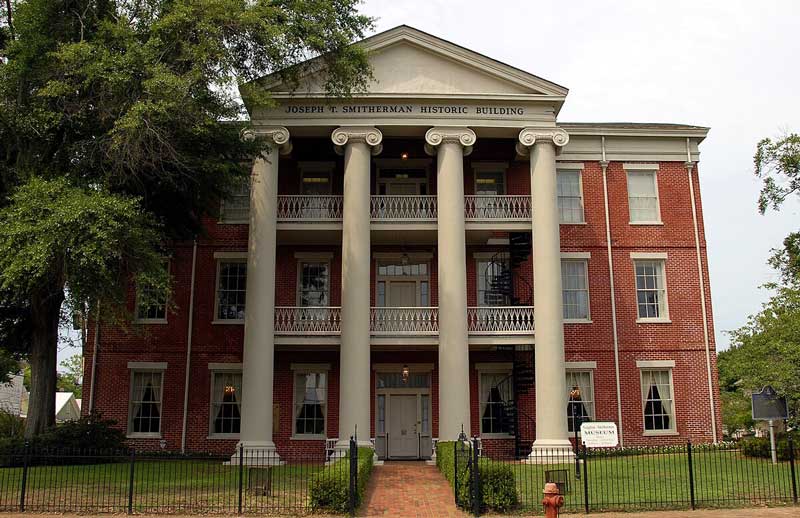
Joseph T. Smitherman Historic Building
The Joseph T.Smitherman Historic Building represents one of Selma’s finest examples of late 19th-century commercial architecture. Originally a department store, this imposing structure now serves multiple functions while preserving its historical significance.
The building’s facade features elaborate brickwork and decorative cornices. Inside, original architectural details like pressed tin ceilings and hardwood floors have been carefully preserved.
Today, the building houses various cultural and educational activities. Regular events include art exhibitions and historical programs. Its central location makes it easily accessible.¬
Address: 109 Union Street, Selma, AL 36703
15. Explore By The River Center for Humanity
By The River Center for Humanity offers a unique perspective on civil rights history through innovative programs and exhibits that connect historical events to contemporary social justice issues. This community-based organization provides educational experiences.
Programs include guided walking tours, educational workshops, and community discussions exploring themes of justice and equality. Their approach emphasizes personal stories.
The center collaborates with other local organizations. Programs are particularly valuable for students and educators. Advance reservations are recommended for group programs.¬
Address: 1306 Water Ave B, Selma, AL 36703
16. Visit Historic First Baptist Church
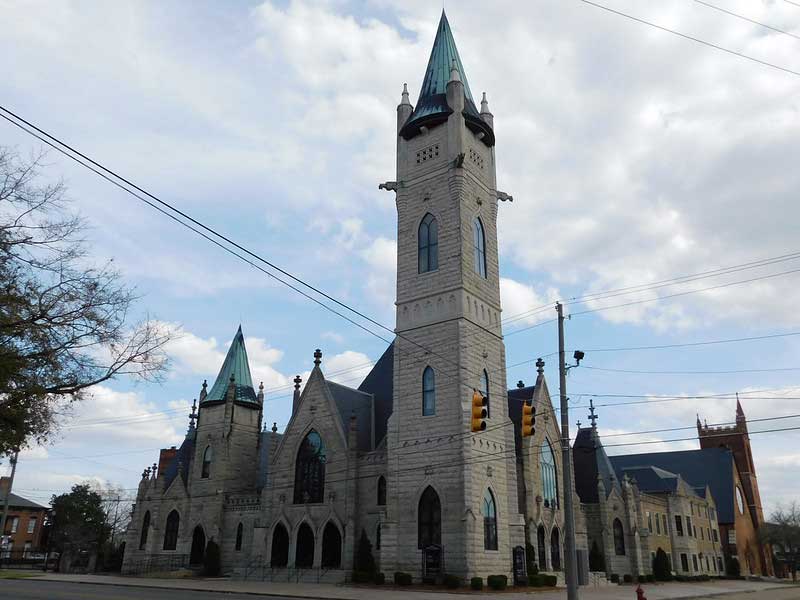
First Baptist Church
Historic First Baptist Church stands as one of Selma’s most architecturally significant religious buildings and an important site in the city’s spiritual and cultural history. Built in the mid-19th century, it showcases beautiful Gothic Revival architecture.
The church’s interior features original wooden pews and period lighting fixtures. Its acoustics are exceptional, making it a popular venue for musical performances. The pipe organ continues to provide beautiful music.
The congregation has played an important role in Selma’s community life. Visitors are welcomed to experience Southern Baptist worship. Special tours can be arranged to highlight the building’s architecture.¬
Address: 1124 Broad Street, Selma, AL 36703
17. Discover Preston’s Station Mural
The Preston’s Station Mural is a stunning example of public art celebrating Selma’s railroad heritage and community spirit. This large-scale outdoor mural depicts scenes from the city’s transportation history.
The mural’s detailed imagery includes historical trains, local landmarks, and portraits of significant figures. Local and regional artists collaborated on the project.
The mural serves as both an educational tool and a beautiful addition to Selma’s downtown. It is illuminated in the evening.¬
Address: 1411 Water Avenue, Selma, AL 36703
18. Experience Historic Selma University
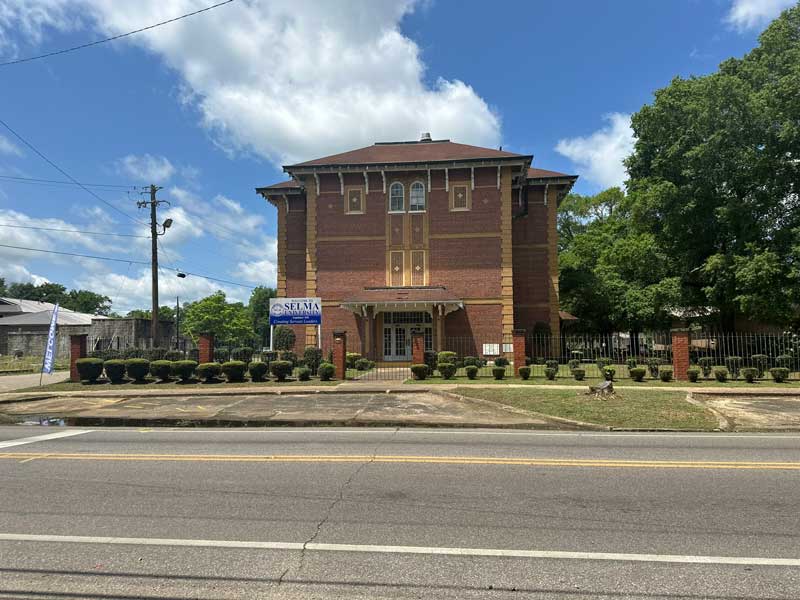
Selma University
Selma University, founded in 1878, is one of Alabama’s historically black colleges and universities (HBCUs). Its campus showcases beautiful late 19th and early 20th-century educational architecture. The university has played a crucial role in providing educational opportunities for African American students.
The campus features several historic buildings. The university’s library contains archives documenting the history of African American education in Alabama.
Visitors can tour the campus by appointment. The university regularly hosts cultural events and lectures open to the public.¬
Address: 1501 Lapsley Street, Selma, AL 36701
19. Take a Day Trip to Camden
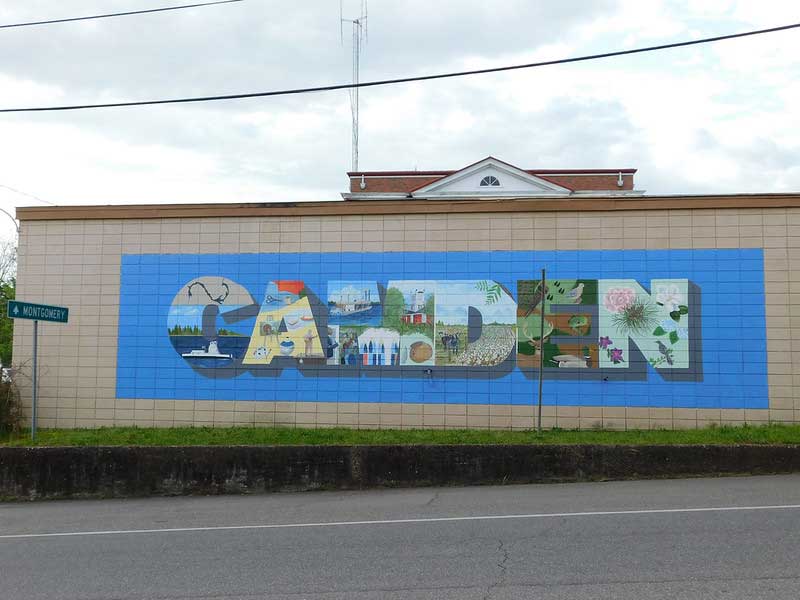
Camden
Just 30 miles southeast of Selma, the charming town of Camden offers a delightful day trip. It’s filled with antebellum architecture, outdoor recreation, and small-town Southern hospitality. Camden’s historic district features beautiful 19th-century homes.
The town’s location along the Alabama River provides excellent opportunities for fishing, boating, and wildlife observation. Several antique shops and local restaurants offer unique treasures. The annual Camden Daffodil Festival in spring attracts visitors.
Camden’s slower pace provides a perfect contrast to Selma’s historical experiences. The drive between the two cities follows scenic rural roads. Plan a full day to explore Camden’s attractions.¬
20. Enjoy Recreational Activities at the Selma Marina
The Selma Marina provides visitors with access to the Alabama River for boating, fishing, and other water-based recreational activities. The marina’s location offers beautiful views of the river.
Boat rentals are available, and guided fishing trips can be arranged. The marina’s facilities include a boat launch, fuel services, and a small store. Picnic areas near the marina are ideal for riverside meals.
The Alabama River at Selma is known for excellent catfish, bass, and other game fish. Wildlife viewing opportunities include various bird species.¬
Address: Water Avenue, Selma, AL 36703
Meet the top attractions in USA, here is a guide on the top things to do in Minden and the things to do in Blue Ridge.
Conclusion
Selma stands as a testament to the power of place to transform not only individual lives but entire nations. This remarkable city along the Alabama River offers visitors far more than historical education‚ÄĒit provides profound emotional experiences, architectural beauty, and Southern hospitality.
From the moment you first glimpse the Edmund Pettus Bridge to your final sunset viewed from Riverfront Park, Selma weaves its magic through powerful history, stunning architecture, and genuine community warmth. The city’s unique position as both a shrine to civil rights heroism and a showcase of antebellum grandeur creates an experience unlike any other American destination.
Whether you’re walking in the footsteps of heroes, marveling at architectural treasures, or simply enjoying the peaceful beauty of moss-draped live oaks, Selma invites you to become part of its continuing story. Come discover why this charming Alabama city captures hearts and creates memories that last a lifetime.
